Bureau of Energy Efficiency (BEE) is an Autonomous Body under the Ministry of Energy, Government of India. Its role is to assist the Nation in Developing Policies and Strategies with a thrust on self-regulation and market principles, with the primary objective of Reducing Energy Intensity of the Indian Economy.
BEE Star Rating for Buildings is a unique tool, which is developed to assess the status of Energy Efficiency in Commercial Buildings. This tool is a Ready Reckoner to determine the Energy Efficiency. This rating system is applicable to buildings with the connected load of 100 kW or greater or contract demand of 120 kVA or greater.
Under this system of evaluation, 1-5 stars are awarded based on the buildings energy usage. The Highest Rating i.e. Five Star Rating is recognised as Highest State of Efficiency. The rating is based upon different criteria such as built-up area, conditioned and non-conditioned areas, type of building, hours of operation of building in a day, climatic zone and other miscellaneous information related to facility.
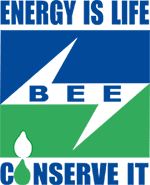
The Energy Conservation Building Code (ECBC) was launched by Ministry of Power, Government of India in May 2007, as a First Step towards Promoting Energy Efficiency in the building sector and to provide minimum requirements for Energy Efficient Design and Construction of Buildings and their Systems.
This “Performance Oriented” code establishes Norms and Standards for Energy Efficiency of Buildings and their envelopes and all service components considering the climatic zones, application, usage pattern, etc. Many States in India have amended and adopted the code after taking into account their regional & climatic requirements. It has been acknowledged as an important tool of the government energy efficiency and climate change policy. ECBC Compliances and Star Ratings are becoming mandatory for the manufacturing sector’s buildings and factories. The development of new projects as well as existing projects need to comply with the guidelines of the accepted level of energy efficiency and performance level. At Conserve. we enable you to reach your organisational goal of operational efficiency.
Conserve Consultants has been Accredited as an ECBC Expert Consultant by the Ministry of Power, Government of India. As an ECBC Expert Consultant. Conserve Consultants is an authorised Third Party Assessor (TPA) to certify ECBC Compliance and issue the ECBC Compliance Verification Certificate.
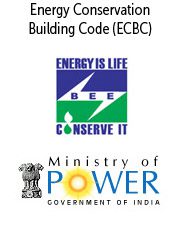
GBCI and IFC launched EDGE in India to jumpstart the mainstreaming of resource-efficient buildings across the country in a fast, simple and affordable way. Green Building Certification Inc. (GBCI) is the global certification partner for EDGE and the certifying body for all EDGE projects in India.
EDGE is a Certification System for New Residential and Commercial Buildings that enables Design Teams and Project Owners to assess highly Cost-Effective ways to incorporate Energy and Water Saving solutions in their buildings. EDGE empowers builders to choose technical solutions while capturing costs and projected operational savings. The drivers behind EDGE are financial, but the results are environmental. EDGE helps mitigate climate change by encouraging resource-efficient development. At Conserve, we understand balancing the cost benefits and environmental benefits without compromising on the project performance.

Estidama, which is the Arabic word for sustainability, is an initiative developed and promoted by Urban Planning Council (UPC), and is tailored to the Middle East region. ESTIDAMA arose from the need to properly plan, design, construct and operate sustainable developments with respect to the traditions embedded within the rich local culture on one hand and the harsh climatic nature of the Gulf Region on the other
Abu Dhabi’s Plan 2030 has been formulated with a clear vision for sustainability in any new development occurring in the Emirates. UPC and Estidama’s team ensures that sustainability is continually addressed through four pre-defined angles: environmental, economic, social and cultural, touching all aspects of life in Abu Dhabi.
By promoting a new sense of responsibility with Estidama, UPC is going beyond other sustainable development initiatives around the world, by creating new tools, resources and procedures crucial to the 2030 vision.
The Estidama Pearl Rating System (PRS) envisages certification under four broad categories: Pearl Community Rating System, Pearl Building Rating System, Pearl Villa Rating System, and Temporary 1 Pearl Building and Villa Program.
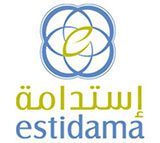
CII-Sohrabji Godrej Green Business Centre, through exhaustive consultations with stakeholders and experts, has developed the ‘Greenco rating’ system for evaluating the ‘greenness of companies’.
The rating system assesses and analyses the environmental impact of a company’s activities or operations, defining the path forward to ecologically sustainable business growth.
Weightage is given to various parameters like energy efficiency, water conservation, renewable energy, GHG emission reduction, material conservation & recycling, waste management, supply chain, product stewardship, lifecycle assessment, ventilation, site selection and innovation, aggregating which leads to certified (level 1), bronze (level 2), silver (level 3), gold (level 4) and platinum (level 5).
These strategies are designed based on an iterative and consultative process that includes building partnerships with stakeholders and employing their cumulative knowledge and experience to address issues related to ecological sustainability. The rating system employs a holistic approach, wherein, it not only advises businesses on strategy and actions required but also provides mechanisms to assess and monitor performance and implement suitable strategies.
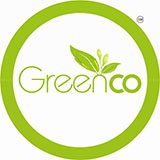
GreenMark by Building and Construction Authority (BCA), Singapore is a green building rating system to evaluate a building for its environmental impact and performance. It is endorsed and supported by the National Environment Agency. It provides a comprehensive framework for assessing the overall environmental performance of new and existing buildings to promote sustainable design, construction and operations practices in buildings.
Under the assessment framework for new buildings, developers and design teams are encouraged to design and construct green, sustainable buildings which can promote energy savings, water savings, healthier indoor environments as well as the adoption of more extensive greenery for their projects. As for existing buildings, the building owners and operators are encouraged to meet their sustainable operations goals and to reduce adverse impacts of their buildings on the environment and occupant health over the entire building life cycle.

Green Rating for Integrated Habitat Assessment (GRIHA) green building rating evaluates the environmental performance of a building holistically over its entire life cycle, thereby providing a definitive standard for what constitutes a green building. Conserve Team comprises of Certified GRIHA Trainer and Auditors which facilitates in creating sustainable values for the GRIHA, SVA-GRIHA and GRIHA Large Development projects.
The Energy and Resource Institute (TERI) developed GRIHA (Green Rating for Integrated Habitat Assessment), which was adopted as the national rating system for green buildings by the Government of India in 2007. The rapid increase in Indian population and growth of Gross Domestic Product (GDP) has given rise to an enormous demand for buildings with a subsequent pressure on availability of resources, especially water. GRIHA attempts to minimise a building’s resource consumption, waste generation, and overall ecological impact to within certain nationally acceptable limits/benchmarks.
The stages in the lifecycle of a project that have been identified for evaluation are: pre-construction stage, building planning and construction stage, and building operation and maintenance stage.
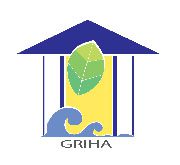
IGBC is a consensus-driven not-for-profit council representing the building industry to encourage builders, developers and owners to build green to enhance the economic and environmental performance of buildings.
The Indian Green Building Council (IGBC), part of the Confederation of Indian Industry (CII), was formed in the year 2001. The vision of the council is, “To enable a sustainable built environment for all and facilitate India to be one of the global leaders in the sustainable built environment by 2025”.
It has the following rating systems: IGBC Green New Buildings, IGBC Green Existing Buildings, IGBC Green Homes, IGBC Green Schools, IGBC Green Factory Buildings, IGBC Green Townships, IGBC Green SEZs, IGBC Green Landscapes, and IGBC Green Mass Rapid Transit System
Each rating system is divided into the levels of: ‘Certified’ to recognise best practices, ‘Silver’ to recognise outstanding performance, ‘Gold’ to recognise national excellence, and ‘Platinum’ to recognise global leadership.
Mr. Parasuraman, Chairman, Conserve, is also the Founding Chairman of IGBC and has shaped the direction of the green building movement in India. His leadership and guidance has enabled Conserve to develop its own unique approach in delivering sustainable value additions to the client’s projects and business processes.
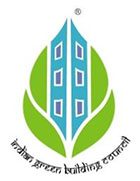
In July 2011, the International Organisation for Standardisation (ISO) released the ISO 50001 standard, Energy Management System, with its requirements and guidance for use, which provides the essential framework and guidelines for establishing and operating an energy management system in general terms.
Implementation of the ISO 50001 standard envisages systematic management of energy leading to reduction in greenhouse gas emissions, energy cost, and other related environmental impacts.
The implementation comprises the following stages: ‘Planning’ to conduct the energy review and establish the baseline and action plans in accordance with the organisation’s energy policy, ‘Doing’ to implement the energy management action plans, ‘Checking’ to monitor and measure processes, and ‘taking Action’ to continually improve energy performance of an organisation.
This International Standard is applicable irrespective of the types of energy involved, and is used for certification, registration and self-declaration of an organisation’s Energy Management System (EnMS). It does not establish absolute requirements for energy performance beyond the commitments in the energy policy of the organisation. Two organisations carrying out similar operations, but having different energy performance, can both conform to its requirements. Effective energy management isn’t just good for business, it’s also becoming a requirement. And the best way to achieve it is with ISO 50001.
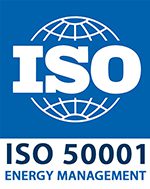
Leadership in Energy and Environmental Design (LEED) is the rating system of Green Building Rating System developed by the United States Green Building Council (USGBC).
The Green Building process of LEED integrates design, construction and operations of the project with a focus on energy efficiency, water efficiency, usage of recyclable and regional materials, improving indoor environmental quality and optimising day light. Conserve undertakes complete facilitation for pre-certification and certification from USGBC. Conserve provides exhaustive consulting services addressing new buildings, renovated buildings, interior design, existing building’s operations and maintenance, neighbourhood development and sustainable homes.
It has 4 levels of certification, each level defined by the number of points earned on a scale of 100. The least level is termed certified scoring 40-49 points, progressing to silver scoring 50-59 points, gold scoring 60-79 points and platinum scoring above 80 points.
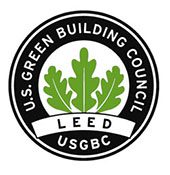
Qatar Sustainability Assessment System (QSAS) was developed by the T.C. Chan Center for Building Simulation and Energy Studies at the University of Pennsylvania in collaboration with and on behalf of the Gulf Organisation for Research and Development [GORD] for the state of Qatar. The primary objective of QSAS is to create a sustainable built environment that minimises ecological impact while addressing the specific regional needs and environment of Qatar.
QSAS rates projects based on the classification as Commercial, Core & Shell, Schools, Residential, Mosques, Hotels, Light Industry, Sports, and Neighbourhoods, rating them for design, construction and operations phases. The measurements, calculations, simulations, scoring ranges, and weights change accordingly for each building type and project phase.
QSAS comprises of eight categories like Urban Connectivity [UC], Site [S], Energy [E], Water [W], Materials [M], Indoor Environment [IE], Cultural & Economic Value [CE], Management & Operations [MO] with each category comprising of related criteria to help in measurement.
The certification levels range from 1 star to 6 stars with a maximum cumulative score of 3. A project earning a cumulative score of less than 0 is denied certification.
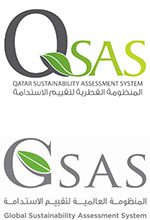
The WELL Building Standard® (WELL) is administered by the International WELL Building Institute (IWBI), a public benefit corporation whose mission is to improve human health and well-being through the built environment. IWBI was launched by Delos in 2013, following a Clinton Global Initiative commitment by Delos founder Paul Scialla to improve the way people live by developing spaces that enhance occupant health and quality of life by sharing WELL globally. It is the world’s first building standard focussed exclusively on human health and wellness. It marries best practices in design and construction with evidence-based medical and scientific research – harnessing the built environment as a vehicle to support human health and wellbeing.
The WELL Building Standard sets performance requirements in seven categories relevant to occupant health in the built environment – Air, Water, Nourishment, Light, Fitness, Comfort and Mind, and is rated at 3 levels: WELL Silver, WELL Gold and WELL Platinum
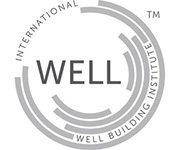
RESET™ Air is a standard for indoor air quality that integrates performance-based data with cloud technology to make real time environmental health data accessible to occupants of indoor spaces. RESET™’s mission is to regenerate global ecological, social and economic environments through improving human health, and to make occupant health a measurable deliverable for all buildings and spaces. We believe that access to environmental health data leads to greater awareness of the problems we face in our built environments, and subsequently higher engagement with finding solutions to modern air quality problems.
Real Time Data:
RESET™ is the only building standard based on real time data gathered by monitors.
• Human Health:
The RESET™ Standard focuses on human health as the main target. We care about metrics that directly impact human health, such as indoor air quality.
• Long Term Monitoring:
To apply RESET™ Standard, building or spaces need to be monitored over a long term period to make sure environmental quality stays consistently high during the occupancy phase. The RESET™ Certification system is based on an annual recertification process that ensures this long term monitoring process.
• Communication:
RESET™ facilitates real time communication of indoor health data so that it can be accessed by all tenants. Not only can this build air quality awareness and social equity, but it can also lead to economic benefits including greater tenant retention and increased building valuation.
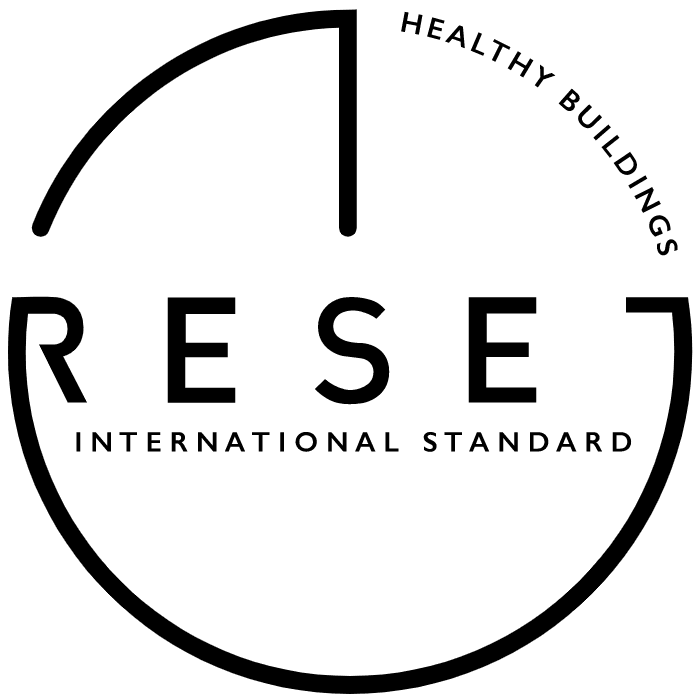
Fitwel is a commercial building rating system that provides guidelines on how to design and operate healthier buildings. As green building consultants, SIG is always tapping into the industry to get a feel for what is trending, and we have heard a lot of buzz about this new rating system for two main reasons:
- Health and wellness is becoming increasingly more important to people and is one of the next major trends in green building. McKinsey & Company has even predicted that “wellness” is the next trillion-dollar industry.
- Fitwel is a less expensive and faster certification than the WELL Building Standard.
Created as a joint initiative led by the U.S. Centers for Disease Control and Prevention (CDC) together with the General Services Administration (GSA), Fitwel provides guidelines for designing, constructing, and operating healthier buildings. The Center for Active Design (CfAD) is the operator of Fitwel and responsible for the third-party verification of the certification.

